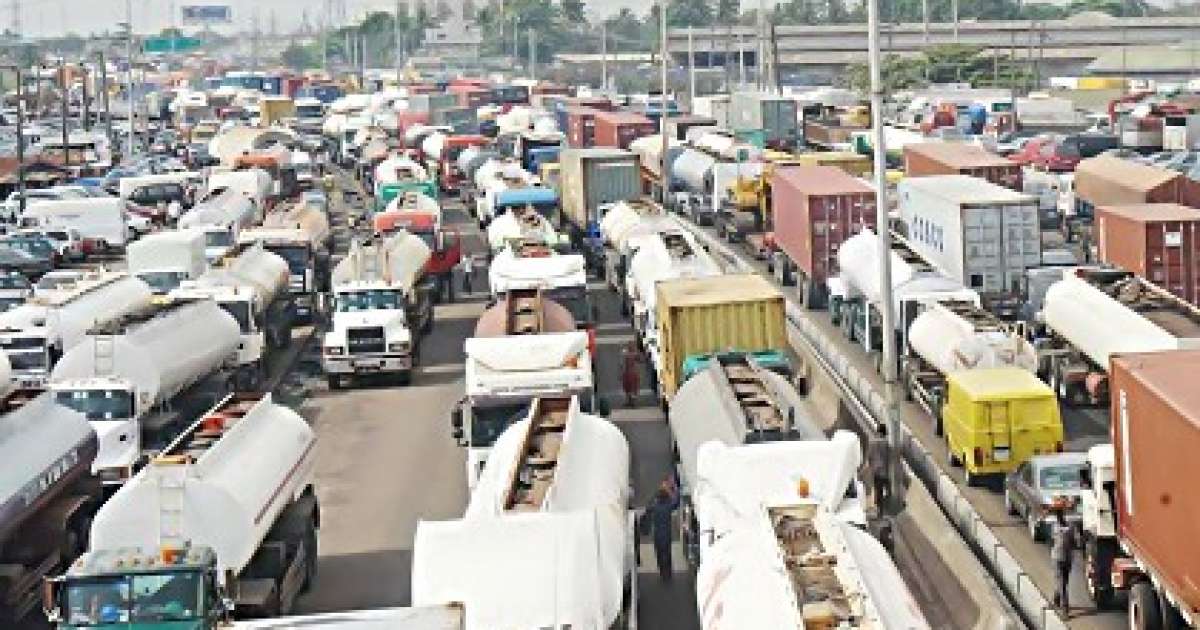Apapa gridlock: Lagos moves to take over Presidential Taskforce Operations
….to create a new operational template for the task force.

Governor Babajide Sanwo-Olu of Lagos State has disclosed move by the State Government to take over the enforcement of the Presidential Taskforce on Port Decongestion.
Lagos State will create a new operational template for the task force, which will be enforced by a combined team of officers of Lagos State Traffic Management Authority (LASTMA) and the police in order to restore sanity to the area.
The governor had on Tuesday embarked on an unplanned fact-finding visit to Apapa in Lagos to ascertain the causes of incessant gridlock on roads leading to the seaports.
It was the fourth time Governor Sanwo-Olu and members of the State cabinet would be visiting Apapa over traffic congestion, which has impacted negatively on businesses and lives in the environ.
The blame game
While the Governor physically assessed the complexity of the situation that allowed heavy-duty trucks to clog up the access roads, a blame game ensued between stakeholders operating within and around the Apapa seaports.
The Committee of Freight Forwarders and Maritime Truckers (COFFAMAT) blamed the Nigerian Port Authority (NPA) officials, Presidential Taskforce on Port Decongestion and the police for the corruption that allowed truck drivers to park indiscriminately on the road, while the Council of Maritime Transport Union and Association (COMTUA) absolved the police and the Taskforce, accusing COFFAMAT, truck drivers and other stakeholders of not playing by the rules.
A customs licensed clearing and forwarding agent, Mr. Boniface Okoye, heaped the blame on the customs for “giving undue access to the shippers’ council to leave empty containers to the port areas, while pointing accusing finger to the police for looking away after allegedly collecting kickbacks.
Following the accusation and counter-accusation, Sanwo-Olu intimated the stakeholders of the State Government’s move to checkmate activities of all operators that had led to the problems being experienced in the area.
The plan
The Governor wondered why container-laden trucks not yet called upon for loading in the ports were indiscriminately parked on newly rehabilitated Tincan Road, instead of moving into the approved terminal provided by the Government.
He said: “Our plan is to bring about cohesive system where all stakeholders would understand their roles and resolve challenges being encountered.
“Since last year, the Presidential Taskforce has been working on this issue.
“Now, there is a process that is starting in which the State Government is taking over the task force and this is one of the reasons for this trip to Apapa today; to ascertain what needs to be done.
“We will have a team of policemen and LASTMA dedicated to Apapa Ports for enforcement of task force’s mandates.”
He noted that his visit to the ports would be followed up with stakeholders’ engagement with NPA, shipping companies’ owners and freight forwarders, stressing that a situation where truck drivers needed to wait for about ten hours for handing over of operation from one NPA team to another was not acceptable.
Sanwo-Olu also said that the sharp practices and inadequacies observed in the handling of the container operations at the ports would be escalated to the Minister of Transport while the misconducts of the policemen stationed close to the ports would be reported to the Inspector General of Police (IGP).
“Lagos State Government is not the owner of the ports whose operations is causing pain to residents, but we owe a duty to our citizens whose lives and businesses have been badly impacted because of the gridlocks created in this part of the State.
“I believe this trip would give us another opportunity where all of us, as stakeholders, will be able to identify impediments and resolve the issues once and for all,” he said.
Also as part of the issues to be resolved with the Federal Government over Apapa congestion according to the governor was the uniformity in the operational licence being issued to barge owners.
This, he said, is to stop creation of illegal terminals for barge operators and make adequate plan for licences operating in traffic-prone areas.
“We have arrested people we felt were operating illegal barge terminals before, but we were surprised some of these people had licenses issued by the Federal Government.
“This is part of the issues we want to resolve,” he stressed.
